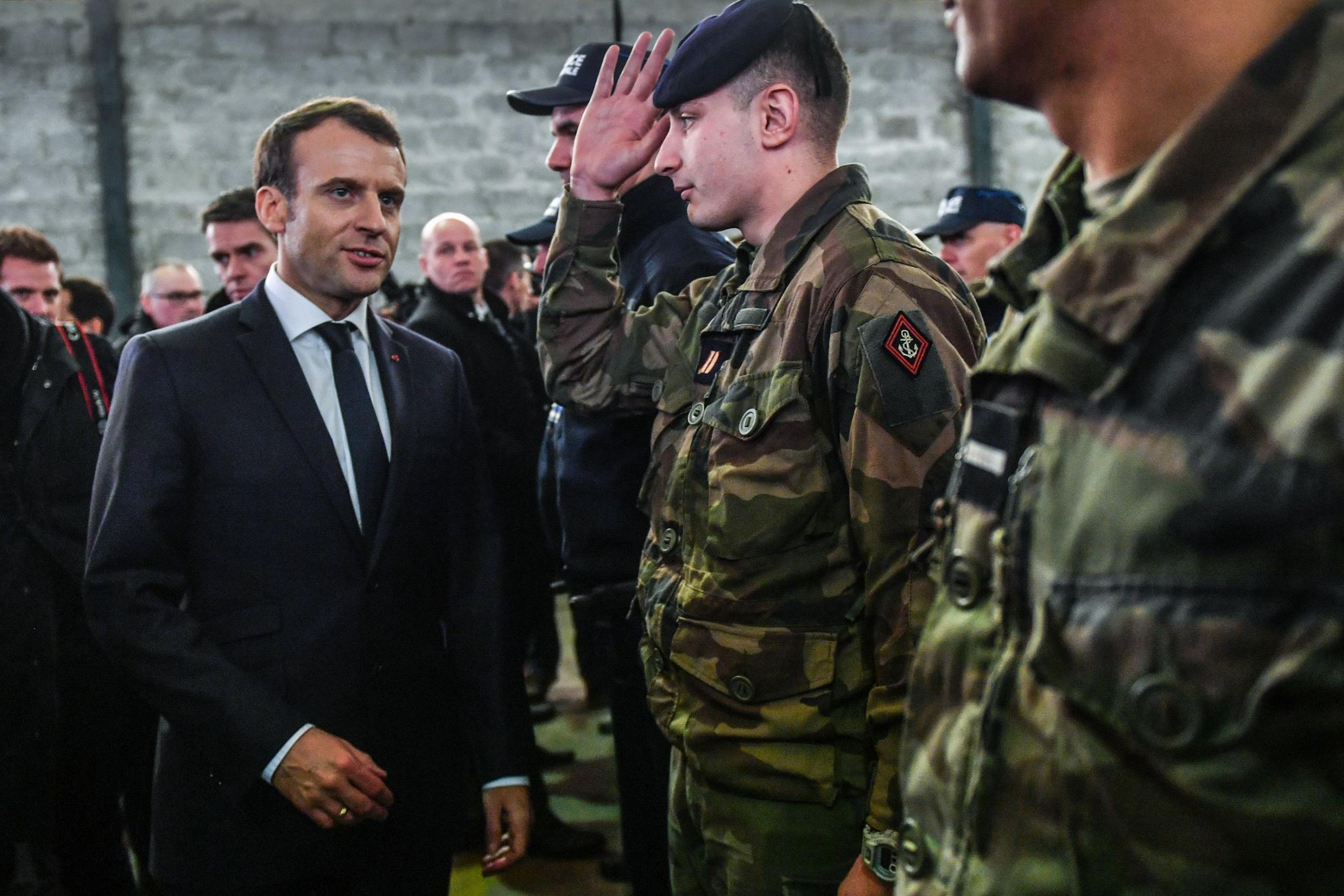French president Emmanuel Macron to bring back compulsory military service for young people
President overruled defence minister who said national service might not be compulsory

Your support helps us to tell the story
From reproductive rights to climate change to Big Tech, The Independent is on the ground when the story is developing. Whether it's investigating the financials of Elon Musk's pro-Trump PAC or producing our latest documentary, 'The A Word', which shines a light on the American women fighting for reproductive rights, we know how important it is to parse out the facts from the messaging.
At such a critical moment in US history, we need reporters on the ground. Your donation allows us to keep sending journalists to speak to both sides of the story.
The Independent is trusted by Americans across the entire political spectrum. And unlike many other quality news outlets, we choose not to lock Americans out of our reporting and analysis with paywalls. We believe quality journalism should be available to everyone, paid for by those who can afford it.
Your support makes all the difference.French President Emmanuel Macron has vowed to plough ahead with a campaign promise to reintroduce compulsory military service to France nearly two decades after it was scrapped.
During his election campaign Mr Macron pledged to give all young people “a direct experience of military life with its know-how and demands” and said restoring national service would inspire patriotism and social cohesion.
Between 600,000 and 800,000 young people are year would face military training and spend at least a month with the armed forces – at great cost to the French state.
The policy has caused a rift in the French cabinet after defence minister Florence Parly said last week that the policy would “probably not be obligatory” for young people.
But a spokesperson for Mr Macron overruled her on Tuesday and insisted that the service would be both “universal” and “obligatory” and that there would be no U-turn on the campaign pledge. The spokesperson left open the possibility that the service could involve “civic engagement” and said specific proposals would be outlined by a government taskforce in April.
Mr Macron is the first modern French President not to have done military service, because he came of age after the practice was scrapped. The Government wants to trial the return of the scheme from 2019.
The centrist politician has been unclear about the exact nature of the service, suggesting in January of this year that it could involve “social, environmental, and cultural domains”.
During the French Revolution France pioneered military conscription as a condition of citizenship. By the second half of the 20th century the amount of military service required was scaled back from the 1960s onwards, with the practice finally being phased out between 1996 and 2001.
In Britain, National Service was ended from 1957 onwards, with the last conscript leaving the army in 1963. Many countries have abandoned conscription in recent years, preferring professionalised armies. The policy can be expensive, with countries that continue with the practice racking up huge defence budgets for little perceived military advantage.
Greece, Finland and Russia all have compulsory military service. Sweden, which abolished the practice in 2010, restored it in 2017 amid tensions in the Baltic sea region.
Mr Macron won 24 per cent of the vote in the first round of last year’s French presidential election, taking him through to the run-off where he been far-right National Front candidate Marine Le Pen.
Join our commenting forum
Join thought-provoking conversations, follow other Independent readers and see their replies
Comments